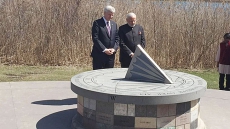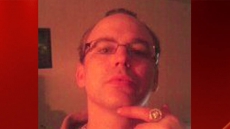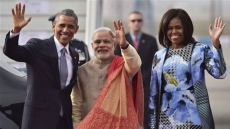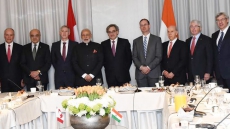VANCOUVER — The United States has vaulted another hurdle in its bid to extradite a Chinese national living in British Columbia who is accused by the FBI of pilfering American military trade secrets.
Defence lawyer Greg DelBigio fell short of convincing B.C. Supreme Court Justice Bruce Greyell to adjourn Su Bin's extradition hearing until a slew of electronic documents confiscated after the man's arrest in June 2014 could be translated.
The U.S. Department of Justice has accused the man of masterminding a plot to swipe confidential information from several American defence contractors, including Boeing and Lockheed Martin, to pass along to the Chinese government.
DelBigio said a shortage of RCMP resources should prompt an indefinite postponement of the proceedings, arguing that the accused hacker is entitled to have access to any information that could be used against him in court.
"He is disadvantaged only because of resource issues in which he is no way responsible and has no control over," DelBigio told the court.
Greyell dismissed the adjournment application Wednesday afternoon, saying Su failed to apply for disclosure earlier in the proceedings and that the request was overly broad, given that the man would already be familiar with the contents of his seized devices.
Su appeared in court dressed in a crimson-red, prison-issued outfit. He smiled and waved to the public gallery before taking a seat in the prisoner's dock, his interpreter alongside him.
Su heads a China-based aviation technology company called Lode-Tech, which also has an office in Canada.
The court heard that the U.S. is applying to send a team of investigators to Canada to help with extracting and translating data from the seized equipment, which a Crown lawyer described as consisting of "hundreds and hundreds of thousands of documents." That application will come before B.C. Supreme Court in two weeks.
In outlining the evidence against Su, Crown lawyer Diba Majzub explained how two Chinese military officers would allegedly infiltrate the American defence company's networks and relay a listing of available documents to the accused, who would highlight valuable assets for them to steal.
"There are many picture documents — the useful ones are marked in yellow," Majzub quoted Su of writing in an email to one of his alleged co-conspirators. Attached to the correspondence was a 1,647-page spreadsheet listing 50,000 files, the majority of which Majzub said would only have been available internally on a Boeing server.
Another email, sent by Su in May 2012, contained a 120-page flight-test plan for an F-35 stealth fighter plane produced by Lockheed Martin, said Majzub. The court heard that a company engineer put the value of the document at between $12-14 million.
Other data allegedly taken at Su's direction were diagrams and technical backgrounders on the C-17 transport plane and the F-22 fighter aircraft.
A Los Angeles grand jury indicted Su last August on five offences — conspiracy to steal trade secrets, conspiracy to export defence information and three charges related to unauthorized computer access.
None of the allegations has been tested in court.
The Canadian government is attempting to revoke Su's permanent residency status but he is appealing the decision.




